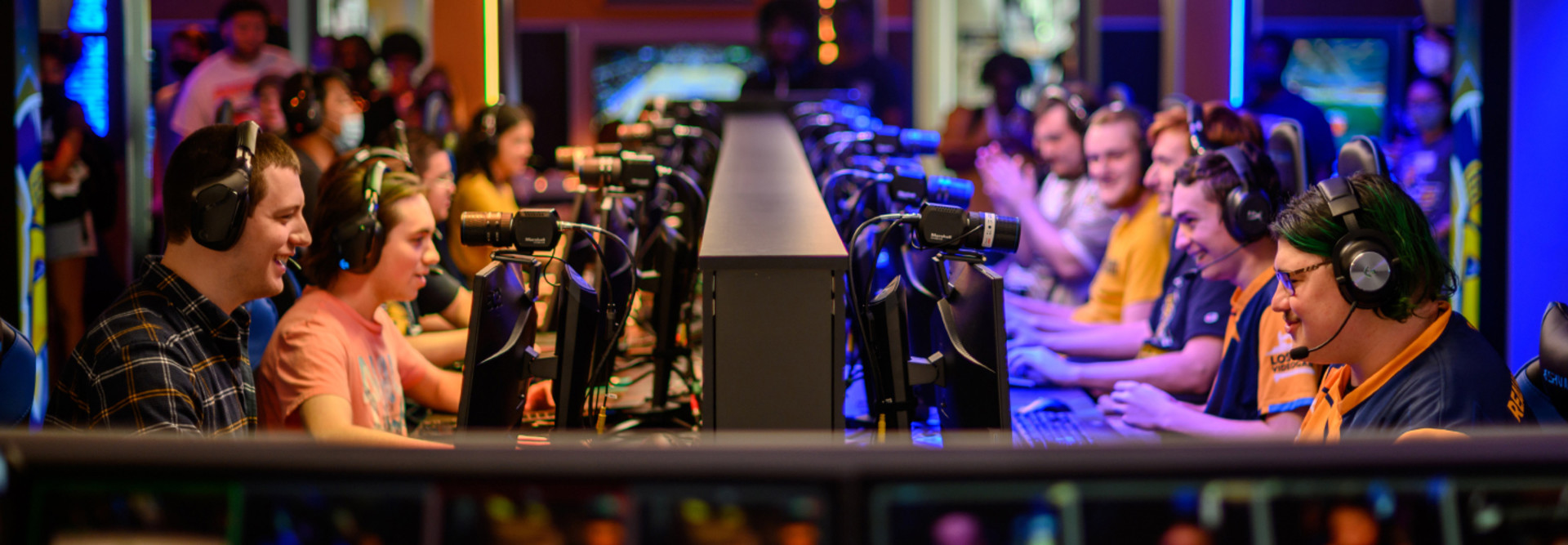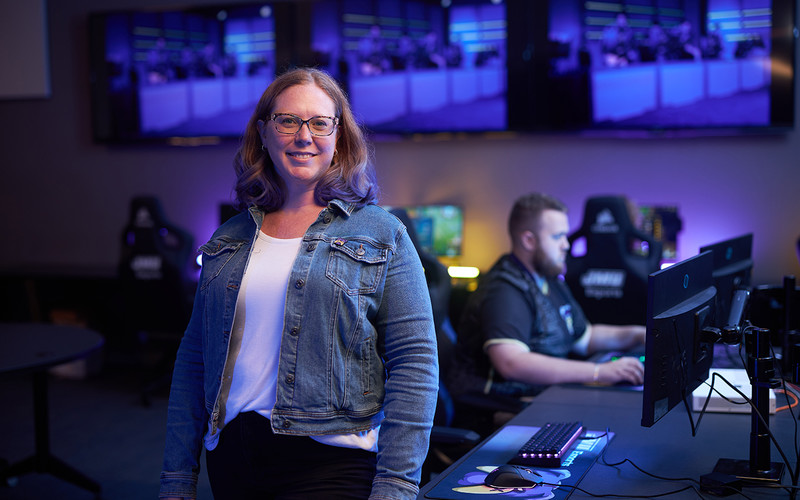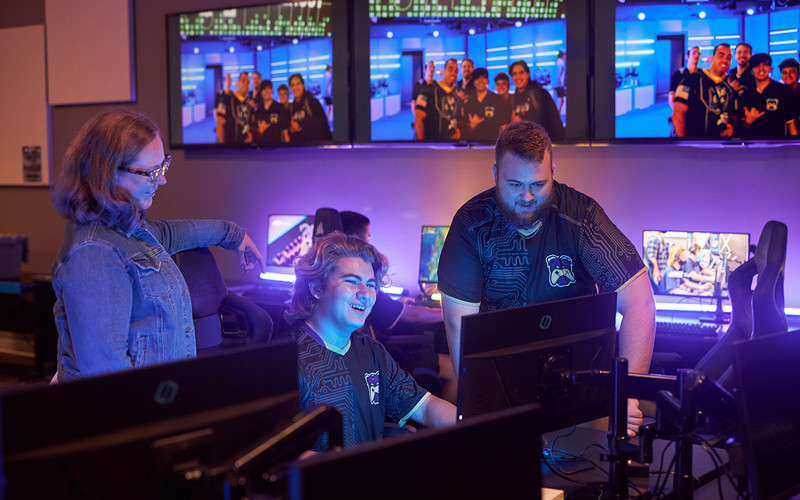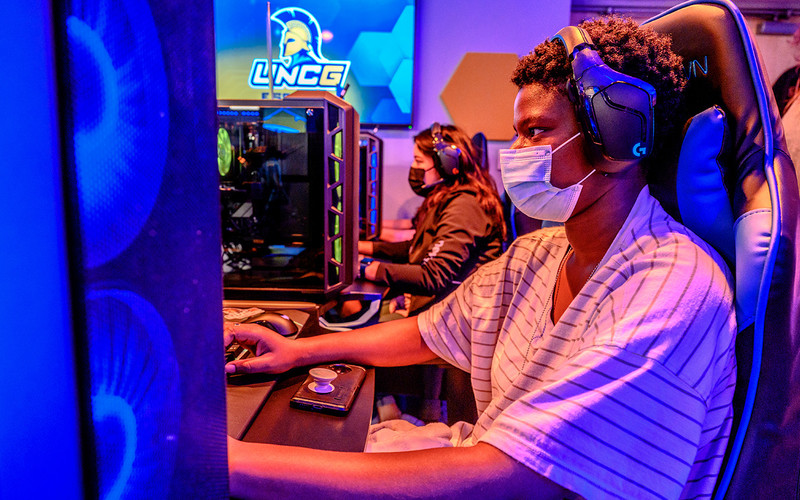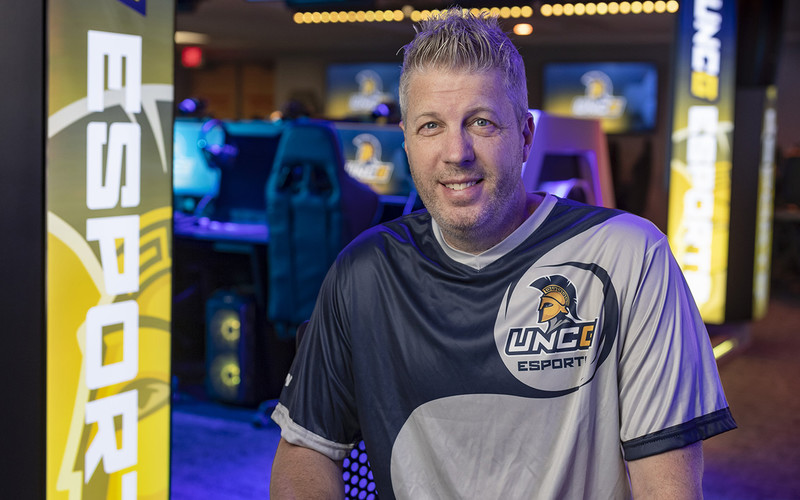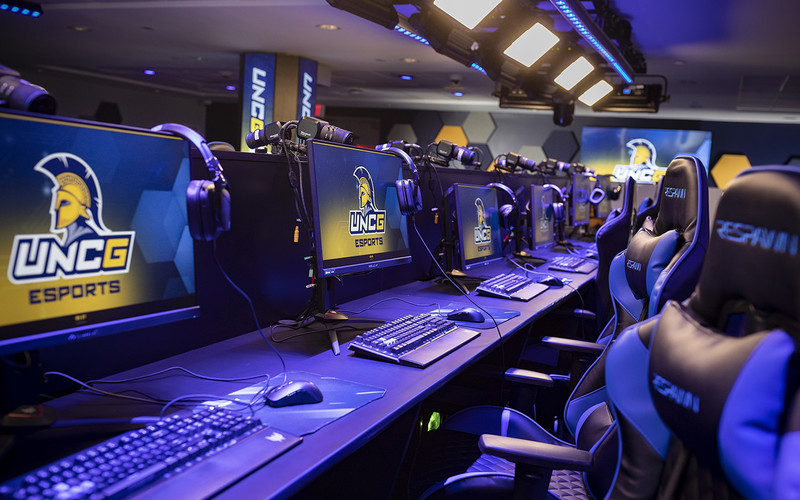That vision, he explains, includes two initiatives in particular: a noncredit six-course digital certificate program and an esports management concentration.
The certificate program was launched in late 2021, while the arena was still under construction, Sutton says. Designed to give students in-demand skills they can use to land jobs in the industry, it covers everything from esports history to how to negotiate professional player contracts.
The esports management concentration, on the other hand, was the subject of conversation at the arena’s opening. Tailored for students pursuing degrees in hospitality and tourism management through the university’s business school, the academic track includes credited coursework in all aspects of esports operations.
“You can’t look at the numbers around esports and not get excited about the career opportunities,” Sutton says. “When we talk about esports, it’s not just gaming, and it’s definitely not just about becoming a professional gamer. It’s everything within the esports ecosystem, the people and the jobs that make the industry run.”
WATCH: A cutting-edge esports advantage at Full Sail University.
Esports Academics Help Students Adapt to an Emerging Industry
It’s those numbers, in fact, that have led colleges across the country to the same conclusion as UNCG: Esports belongs in the academic fold.
By one estimate, global esports revenue will approach $1.8 billion in 2022. That’s up from less than $1 billion in 2020, but it’s also just the beginning in terms of what analysts see coming down the road.
“In every way you can imagine, things are bigger, things are better, things are stronger” than they were just a few years ago, notes Michael Brooks, executive director of the National Association of Collegiate Esports. As North America’s largest member association of varsity esports programs in the higher ed space, NACE has benefited from the industry’s boom, he says. “As we look ahead, we’re only expecting more — more interest, more growth and no end in sight.”
The primary reason for his optimism, Brooks explains, is the fact that so many higher ed institutions now see esports as more than fun and games. “By far, the biggest evolution we’ve seen is the new academic programming that schools are offering. They’re looking at the industry, and it’s moving so fast that it’s all they can do to try to keep up.”



